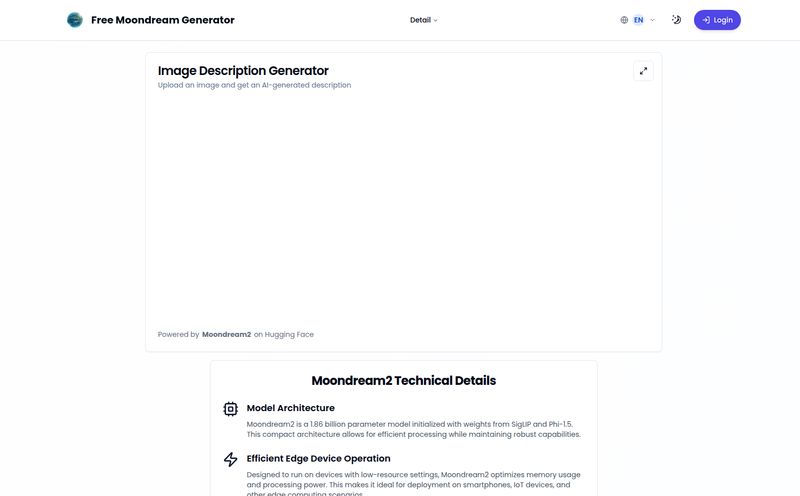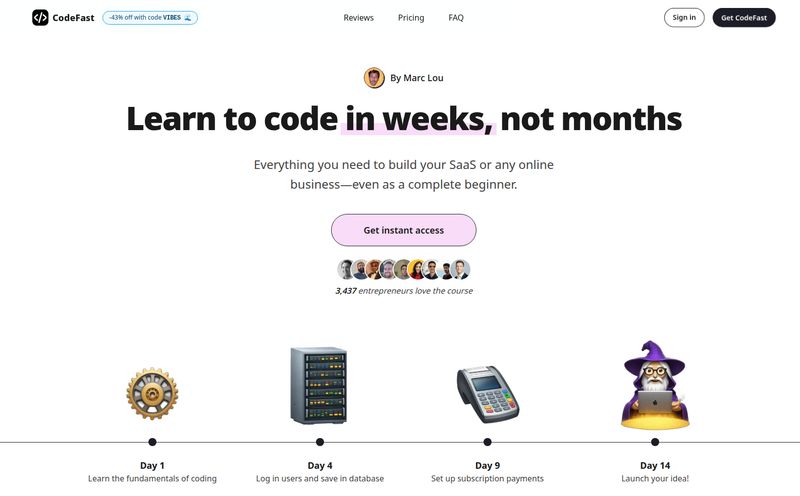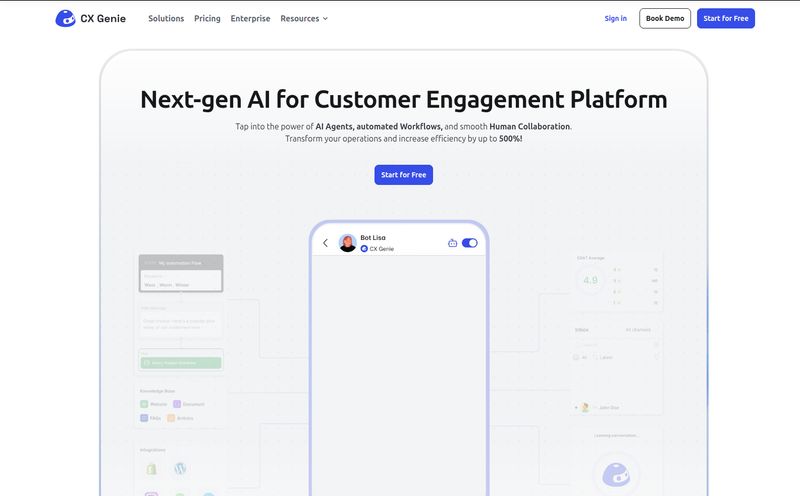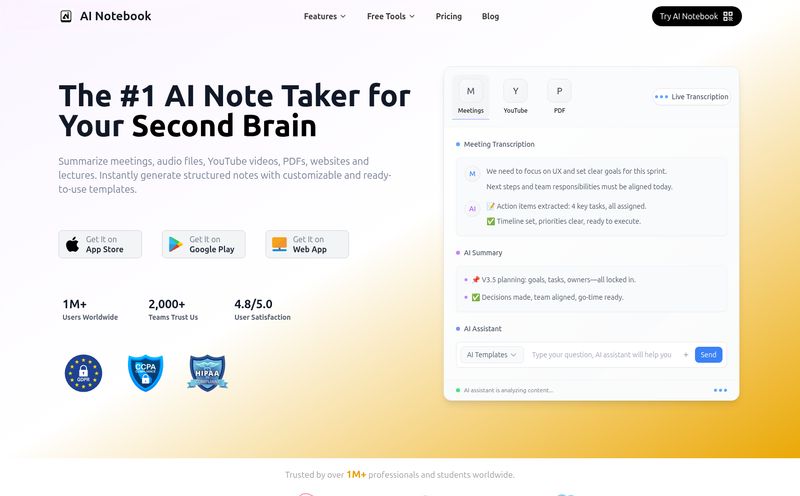If you’ve spent any time developing for the web, you've muttered the five most infamous words in our industry: “Well, it works on my machine.” You build something amazing, it runs perfectly on localhost, but then comes the moment of truth. You need to show it to a client. Or maybe you need to test a webhook from a service like Stripe or GitHub. Suddenly, your cozy little local setup feels like it's on a deserted island, with no way to communicate with the outside world.
For years, the solution has been a patchwork of port forwarding (a nightmare), deploying to a staging server (slow), or using a tool like ngrok. And look, ngrok is fine. It got the job done. But I've always felt there was room for something... better. Something built with a bit more of a developer-first mindset.
A few weeks back, I stumbled upon a tool called Lokal.so. The name was clever, the landing page was clean, and the promises were big. So, naturally, I was skeptical. But I dove in, and folks, I think I’ve found my new go-to for local tunneling. Let me walk you through it.
So, What is Lokal.so, Really?
At its core, Lokal.so is a tunneling software. If that sounds like tech jargon, think of it this way: it creates a secure, magic pipeline from a specific port on your computer (like `localhost:3000`) to a public, internet-accessible URL. Instantly. No messing with your router, no begging your IT department for access, no deploying half-finished code.
But it does a bit more than just that. It handles two main things beautifully:
- Public URLs: This is the main event. You're working on a new feature, you run one simple command, and BAM—you get a URL like `https://random-words.lokal.so` that you can send to anyone in the world. They can see and interact with the project running directly on your laptop.
- .local Domains: This is the feature I didn't know I needed. It uses mDNS to give your local project a clean name on your own network, like `https://my-project.local`. Why is this cool? It's perfect for testing on different devices on your Wi-Fi (like your phone or tablet) without having to type in an IP address. It also automatically handles the HTTPS certificate, so you can say goodbye to those annoying browser security warnings during local dev. It's just... clean.
The Features That Genuinely Make a Difference
A tool can have a million features, but only a few usually count. For Lokal.so, the list of actually useful stuff is pretty impressive.
HTTP Inspection and an AI Assistant?
This is where Lokal.so starts to pull away from the pack. If you've ever tried to debug a webhook, you know the pain. You trigger an action on a third-party service, and... nothing happens. Or something breaks. What did they send? What were the headers? What was the payload? Without a tool to inspect the incoming request, you're flying blind.
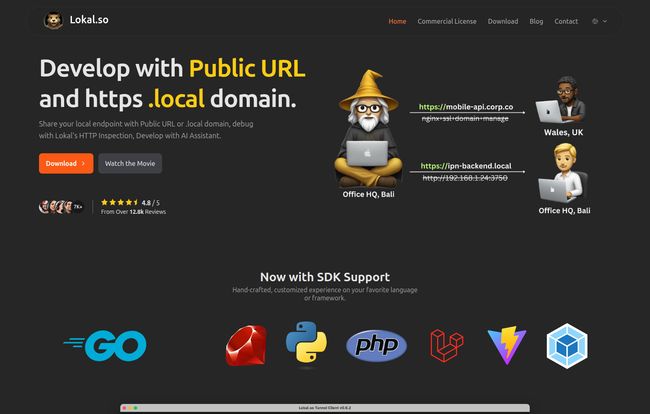
Visit Lokal.so
Lokal.so has a built-in HTTP inspector that shows you every single detail of the requests coming through your tunnel. It’s a lifesaver. But then they added an AI Assistant on top of it. I'll be honest, I rolled my eyes at first—'AI' is slapped onto everything these days. But it can actually be helpful for explaining complex payloads or suggesting fixes. It’s not a gimmick, but a genuinely modern touch that can speed up debugging. It feels less like a tool and more like a partner.
Integrations and Self-Hosting Options
The team behind Lokal.so clearly understands that developers live in their terminals and code editors. They provide SDK support for a bunch of popular languages and frameworks like Go, Ruby, PHP, and Laravel. This means you can integrate Lokal's functionality directly into your application, which is pretty powerful stuff.
Another huge point in its favor is the choice between Cloud and Self-Hosting. Want the convenience of just running a command and getting a URL? Use their cloud service. Are you a bit of a control freak like me, or does your company have strict data privacy rules? You can self-host Lokal.so on your own server. Having that choice is a massive sign of respect for the developer community.
Putting It To The Test: My Experience
I decided to try it out on a small NodeJS project I was fiddling with. I grabbed the Lifetime License (more on that in a sec) and downloaded the GUI version for macOS. The setup was painless. Within about five minutes, I had the app running and my first tunnel active. It was shockingly simple.
I sent the public URL to my colleague via Slack. He was able to access the web app running on my machine from his office across town. It felt like magic. Later, I had to test a webhook from a payment gateway. I pointed the webhook URL to my new Lokal.so address, and the requests started showing up in the inspector instantly. The JSON was perfectly formatted, and I could see every header. No more `console.log` and pray. It was a smooth, frustration-free experience, which is more than I can say for some other tools I've used.
Let's Talk About the Price Tag
This is often the deciding factor, and it's where Lokal.so really shines, in my opinion. They have a pricing model that feels both fair and incredibly smart.
| Plan | Price | Best For | Key Features |
|---|---|---|---|
| Lifetime License | $57 (one-time) | Indie Hackers, Freelancers, Small Projects | 3 devices, unlimited .local domains, self-hosted public URL, HTTP inspection with AI, runs on Desktop/Web/CLI. |
| Lokal Cloud | $50 / year | Agencies, Teams, Professionals | Everything in Lifetime, plus persistent public URLs, custom domains, 100GB monthly bandwidth, and priority support. |
Let's be blunt: a $57 lifetime license for a tool this useful is an absolute steal. We've all got subscription fatigue. Paying a monthly fee for every little service adds up. The idea of paying once and owning a solid piece of software forever is incredibly appealing. For any freelancer or small dev shop, this is a no-brainer investment.
The Lokal Cloud plan at $50 a year is also very competitive. If you need stable, persistent URLs that don't change every time you restart the tunnel, or you want to use your own domain (`dev.mycoolagency.com`), this is the plan for you. The price is more than reasonable for the professional features it adds.
The Other Side of the Coin
No tool is perfect, and it’s only fair to point out the downsides. Lokal.so is great, but there are a few things to keep in mind.
- Paid Features: The best stuff, like the persistent URLs and custom domains, is behind a paywall. This is totally fair, but something to be aware of. The free version is more for non-commercial or personal use.
- GUI Memory Usage: I noticed the desktop GUI version was a bit more memory-hungry than just running the command-line (CLI) version. This is pretty typical for GUI apps, but if you're working on a resource-strapped machine, you might want to stick to the terminal.
- Device Limits: The licenses come with limits on the number of devices you can use them on. The Lifetime license gets you 3 devices, which is generous, but it's not unlimited. Just something to check before you buy.
How Does It Compare to Ngrok?
This is the big question. Ngrok has been the king of this space for a long time. So, should you switch? Here's my take.
Ngrok's free tier is more limited now than it used to be, often with session timeouts and a clunkier experience. Its paid plans are solid but are all recurring subscriptions. Lokal.so's biggest weapon here is that one-time lifetime deal. It’s a fundamentally different value proposition.
Feature-wise, they are very similar, but Lokal.so feels a bit more modern with its UI and the integrated AI assistant. The emphasis on `.local` domains and the transparent self-hosting option also feel like strong points for Lokal.so. It feels less like a generic utility and more like a tool built by developers who actually understand the day-to-day workflow.
Frequently Asked Questions
- What payment methods does Lokal.so accept?
- They use Lemon Squeezy for payment processing, which supports major credit cards like Mastercard, Visa, Maestro, American Express, and also PayPal.
- Is the lifetime deal really for life?
- Yes. You pay once and you get access to all the features under that plan, including future updates, for the lifetime of the product. It’s a pretty amazing deal.
- Can I use my own domain name?
- You can! This feature is part of the Lokal Cloud plan. You can bring up to 5 of your own domains to use for your tunnels.
- Does it work on Windows, Mac, and Linux?
- Yep. The website mentions it works on macOS, Linux, and Windows, so it should have you covered regardless of your setup.
- What's the difference between a self-hosted URL and a cloud URL?
- A cloud URL is provided by Lokal.so's servers for ultimate convenience. A self-hosted URL means you run the Lokal server component on your own infrastructure (like a cheap VPS), giving you full control over your data and connection.
- What kind of support can I expect?
- The Lifetime plan comes with standard working-hour support. The Lokal Cloud plan bumps you up to Priority Support, meaning you'll get faster responses.
So, What's the Final Verdict?
I’m genuinely impressed with Lokal.so. It takes a common, often frustrating developer problem and solves it with an elegant, powerful, and fairly-priced tool. It gets out of your way and lets you focus on what you're actually trying to build.
The bottom line is this: if you're a freelancer, an indie developer, or part of a small team, the $57 Lifetime License is one of the best investments you can make for your toolkit. It will pay for itself in saved time and frustration within the first week. If you're part of a larger agency or need the professional features like custom domains, the Lokal Cloud plan is a fantastic and affordable alternative to the established players.
It's a solid piece of software built by people who clearly get it. And in this industry, that's worth a lot. Give it a try.
